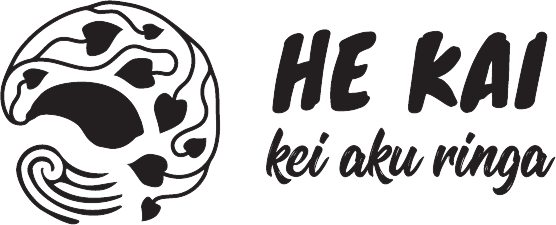02 Jul Weighing in on weightism: Does a weight focused approach align with the Māori view of health?
Last month, guest presenter Dr Isaac Warbrick graced our e-waves for one of our most popular webinars to date bringing us his whakaaro and insights on obesity and weightism, honing in on whether ‘weight’ and ‘weight loss’ are appropriate ‘health’ measures for Māori.
The war on obesity is well and truly here and there is much focus on weight. Because of the association between body weight and many chronic and metabolic illnesses such as cardiovascular disease and diabetes, weight and other weight or body fat-related measurements such as BMI (body mass index) or waist circumference are commonly used to screen and assess health risks.
Weight loss is now linked with health, happiness, and willpower, while being over-weight or obese is linked to ‘unhealthy,’ poor choices, and a lack of willpower. Our modern fascination for weight loss has seemingly led to the stigmatisation of those who are overweight or obese. Considering Māori are among those with the highest prevalence of being ‘overweight’ and ‘obese,’ the line between ‘weight-ism’ and racism can become somewhat blurred.
With the massive amounts of research linking BMI, weight, and waist circumference, to diabetes, heart disease and other aspects of poor health are we not justified in waging a ‘war on obesity’?
Dr Warbrick suggests that although this association is well established, whether increased weight (or even fat) is actually the ‘cause’ of these lifestyle illnesses is less clear. What’s more, many studies have shown that weight loss is extremely difficult and nearly impossible for some people, while others have shown that healthy habits like regular physical activity can improve health even when no weight is lost.
Nevertheless, the commercialisation of weight loss continues to drive a newsfeed full of before and after pictures and new weight loss product after new weight loss product.
For Māori, who have highlighted holistic views of health relating to whenua, whakapapa, wairua, hinengaro and whānau (as well as tinana), a weight focused approach to health or illness does not necessarily align with ‘our’ way of viewing health. Accordingly, there has been a swell of initiatives drawing on traditional knowledge and cultural values to drive health promotion in Aotearoa. This is particularly apparent within various physical activity initiatives where the connection to whakapapa, and traditional knowledge and values have become the driver for lifestyle change.
Yet, despite these movements, the outcome measures used to assess such initiatives almost always default to some weight-related measure, whether weight itself or BMI. Dr Warbrick believes that decolonising health initiatives and the outcome measures which shape them may be necessary to achieving health equity and ensuring a ‘war on obesity’ isn’t just another justification for a ‘war’ on Māori.
Measuring weight is common practice because it is a simple measure that shows a correlation with health and health risk. But just because it’s easy and it’s simple doesn’t mean it’s effective and Dr Warbrick proposes it may do more damage than good.
“You look through the literature [and] it’s quite limited and difficult to show that body fat is the cause of these issues. Rather, it’s the behaviours that actually correlate with body fat. Poor sleep, diet, exercise and so many other things lead to heart disease and diabetes. Body fat is just something that correlates and is a symptom of that poor diet, poor exercise, rather than the cause of it,” he says.
Exercise and nutrition will have benefits on all individuals but the focus needs to shift away from weight. It is hard to change biology with a change in behaviour. However, he does believe that change is definitely coming in iwi and communities. What communities are doing is awesome, hopefully it will trickle up.
“From a holistic point of view, why are we doing something that’s only improving our physical health? What’s the worst that could happen if we throw away the scales? Will the world become fatter and sicker? It’s going that way anyway.”
In days gone by, Māori had a strong connection to taiao and knew innately what needed to be done. There was a real connection. People were very active, the kai that was eaten was in its most pure form and were really connected as a community. If you were to look at that in terms of physical wellbeing we were really good at that. Our whenua provided for us. When you understand that our whenua always provided for us, you understand why it was such a big deal we were displaced from it.
Dr Warbrick believes that strength based is the key when it comes to health promotion and health initiatives and that our strength is our whakapapa.
“’Kia whakatōmuri te haere whakamua. I walk backwards into the future with my eyes fixed on my past,’ that’s what these challenging initiatives were all about. We were strong and still are, prior to colonisation. Looking to our past to provide the strength to overcome the issues that weren’t caused by our DNA or particular habits we had in our culture, but were caused by colonisation which has influenced our health and thinking, everything we do,” says Dr Warbrick.
So what do culturally relevant measures look like? Dr Warbrick acknowledges that the difficulty is going back in time to talk about weight loss when it was never an issue pre-colonisation. Measures are about tracking change and he believes we need to understand what we’re trying to achieve and what success looks like to Māori in order to measure it. There is a growing number of interventions that are novel and innovative and that are culturally relevant, driven by kaupapa. But if weight is the primary measure, ultimately what comes back to the success is going to be measured by weight. If it’s based on kaupapa, we need to develop measures of where we’re trying to get to.
“Stop measuring weight. You can make it not the focus. Whakapapa and mātauranga can be the focus but if weight is measured, people will always want to know. The power of the scale is very important to participants. If they don’t lose weight, they’ll “fail” regardless of any other benefits,” Dr Warbrick says.
To learn more, view Dr Isaac Warbrick’s webinar here.
To connect with Isaac, email him on isaac.warbrick@aut.ac.nz


